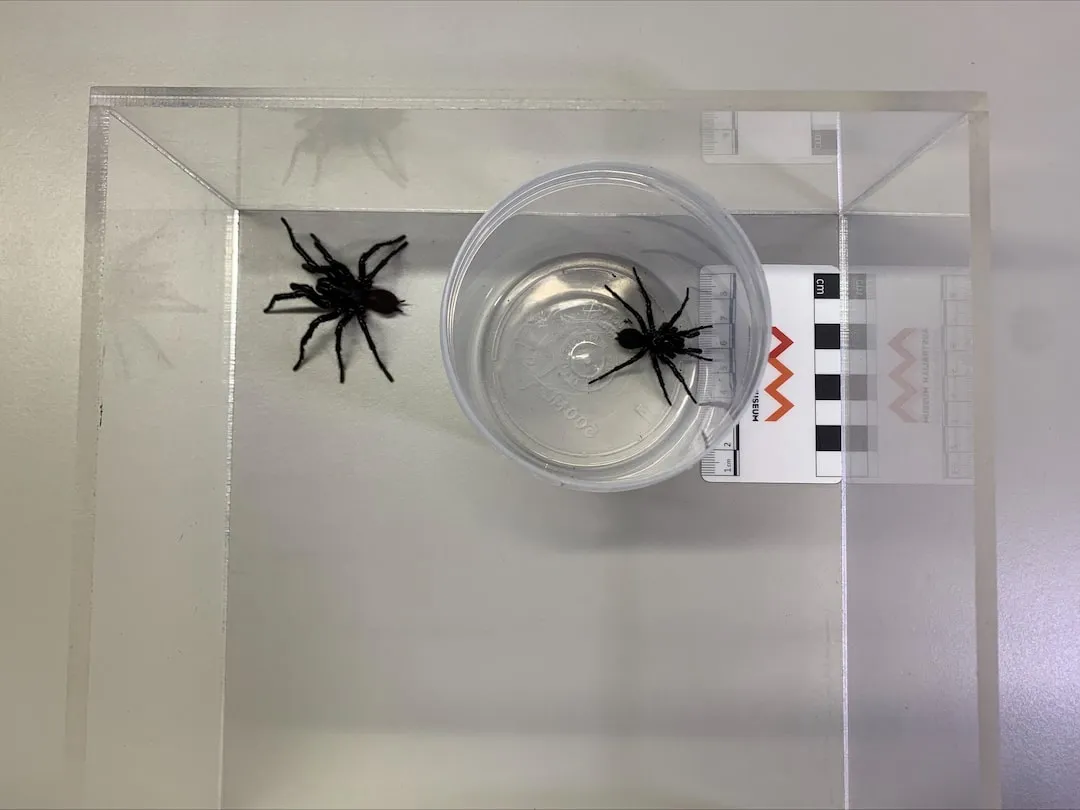Deadly Funnel-Web Spiders on the Rise: What You Need to Know!
Sydney, Australia – A chilling new development in the world of arachnids has scientists and residents on high alert as recent discoveries reveal an escalating threat from one of the planet’s most dangerous spiders. The Sydney funnel-web spider, long feared for its deadly venom and aggressive nature, has emerged as a growing concern for Australian wildlife experts and urban residents alike.
Researchers have recently uncovered disturbing new information about these notorious arachnids, highlighting their increasing prevalence and potential danger. The Sydney funnel-web spider, scientifically known as Atrax robustus, has long been considered one of the most venomous spiders in the world, capable of delivering a bite that can be fatal within hours if left untreated.
Key Insights into the Funnel-Web Spider Threat
-
Unprecedented Size and Venom Potency
Recent scientific investigations have identified a larger and more venomous species of funnel-web spider, sending shockwaves through the scientific community. Experts warn that these spiders are not just larger, but potentially more dangerous than previously understood. -
Habitat and Distribution
Primarily found in the eastern coastal regions of Australia, particularly around Sydney and New South Wales, these spiders have a unique and terrifying adaptation. They create distinctive funnel-shaped webs in moist, sheltered areas, including:
- Garden areas
- Under rocks
- In dense vegetation
- Around human habitations
Dr. Emily Richardson, a leading arachnologist, explains, “What makes these spiders particularly concerning is their proximity to human settlements. They’re not just wilderness dwellers – they’re literally in our backyards.”
Understanding the Danger
The venom of the Sydney funnel-web spider is extraordinarily potent. Unlike many other spider species, these arachnids are known for their:
– Aggressive defense mechanism
– Ability to penetrate human skin easily
– Potentially fatal bite within hours
Interestingly, male funnel-web spiders are considered more dangerous than females. They become particularly aggressive during mating season, increasing the risk of human encounters.
Prevention and Safety
Local authorities and wildlife experts recommend several critical safety measures:
- Protective Clothing: Wear thick gloves and boots when working in gardens or potential spider habitats.
- Home Inspection: Regularly check dark, moist areas around your property.
- Professional Assistance: Contact pest control experts for comprehensive spider management.
“Awareness is your best defense,” says local wildlife expert Mark Hemsworth. “Understanding these creatures can significantly reduce the risk of dangerous encounters.”
Medical Response
If bitten by a funnel-web spider, immediate action is crucial:
– Remain calm
– Apply a pressure immobilization bandage
– Seek emergency medical attention immediately
– Do NOT attempt to catch or kill the spider for identification
A Growing Ecological Concern
Climate change and urban expansion are potentially contributing to the increased spider population. Researchers suggest that changing environmental conditions may be creating more favorable breeding grounds for these dangerous arachnids.
The Bigger Picture
While the news might sound alarming, experts emphasize that fatalities are extremely rare. Since the development of antivenom in 1981, there have been no recorded human deaths from funnel-web spider bites.
Conclusion
The rise of funnel-web spiders serves as a critical reminder of the complex relationship between humans and wildlife. Education, awareness, and respect for these creatures remain our most powerful tools in coexisting safely.
Stay informed, stay cautious, and stay safe.
Disclaimer: This article is for informational purposes only and should not replace professional medical or wildlife advice.
Reporting from Sydney, Australia






Leave a Comment